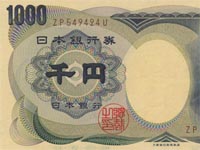Japan tackles crisis with innovation and doggedness
 Tokyo - In the West, most people his age enjoy their well-deserved retirement. But 80-year-old Kazuo Kashio has no time for that.
Tokyo - In the West, most people his age enjoy their well-deserved retirement. But 80-year-old Kazuo Kashio has no time for that.
"I have to continue for now, until the prospects for our company improve again," the president of Japanese electronics company Casio Computer Co says.
Kashio has been on the helm of the company, which he founded together with his three brothers in 1957, for more than 20 years.
Times are hard, the vivacious octogenarian says. The current crisis is worse than its predecessors. "The recession and the strong yen hit us doubly," he says, but still does not look overly concerned.
His company's financial base is one reason for Kashio's confidence. Like many other Japanese companies, Casio used the years of deflation to pay back all outstanding loans.
However, nobody knows how long this recession will last. Japan is facing its most severe economic crisis since the end of World War II.
"This crisis has significant effects," Kashio says. One big Japanese exporter after the other has been slashing its earnings' forecasts for the business year ending March 31, many thousands of temporary workers are laid off.
Casio, which produces watches, pocket calculators, digital cameras and mobile phones, also revised its estimates, now predicting a net loss.
Kashio, who has seen many a crisis, does not complain. After the war, he helped build up the company in the ruins of Tokyo and later steered it through the collapse of the country's bubble economy in the early 1990s.
This time, it is not enough for Japan's electronics companies to just sit out the crisis, he says. "After the crisis, there comes an opportunity, people say," the Casio boss says. "But this is not true. You have to go and take it. It never comes if you don't do anything for it."
There is only one answer to the crisis - to launch new products. Proudly, Kashio presents Casio's latest innovation, a small digital high-speed camera of the EXILIM series. The camera allows users to cut and paste moving objects onto still backgrounds.
Full of boyish enthusiasm, the 80-year-old top manager asks his visitor to dance in front of the camera, taking pictures while skidding around on the leather couch of his expensively, but simply furnished meeting room at Casio's Tokyo headquarters.
Casio's helmsman is one of those Japanese managers who want quick action in the crisis.
The family-run company has been a pioneer in digital camera technology for more than 10 years, launching the first digital camera with an LCD monitor for the consumer market in 1995.
"Our motto is to 'turn zero into one' - to offer something to the world that it can use, but does not have yet," Kashio says. Like the electronic pocket calculator which got the company started in 1957.
Kashio wants to defend his company's technological edge in the time of the downturn. Only those who act now, will be given opportunities in the future, he strongly believes, not put off by the collapse of digital camera sales in view of the global economic crisis.
Casio's latest innovations were new to the market and it takes time until they got absorbed, he says.
Quickly, he cuts the dancing scene filmed earlier and copies it into a still of doorway which he photographed earlier. "Great, isn't it?" he asked happily.
The moment encapsules Japan's innovative spirit of old, and it may well be determination and calm, two of the virtues often associated with the island, that give Japanese managers like Kashio optimism to weather yet another crisis. (dpa)